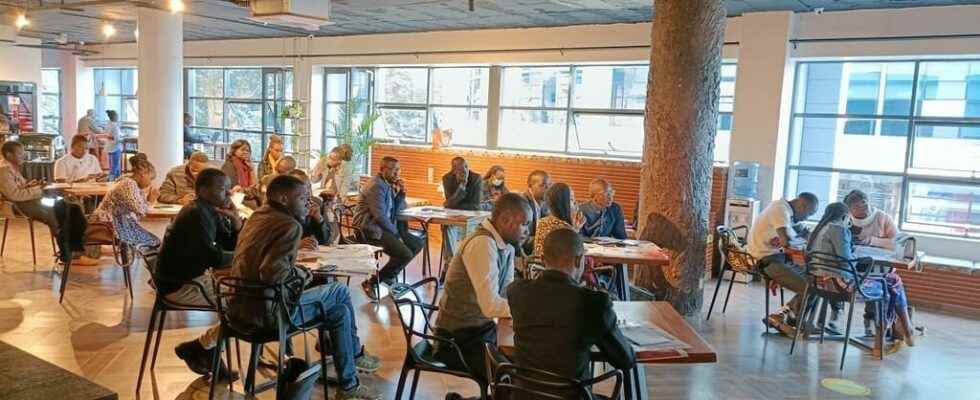The presidential campaign is in full swing in Kenya and each camp is multiplying online publications. Kenyan politicians have understood this well: in a country where half of the inhabitants are under 35 and where 12 million people use social networks, these media are essential platforms for defending a candidacy. But they have also become a mine of misinformation.
With our correspondent in Nairobi, Albane Thirouard
Fake scandals about politicians, bogus polls or altered videos and images… fake news are swarming as August 9 approaches, when Kenyans will go to the polls to elect a new president. So initiatives are multiplying to counter them. A collective from the media was notably formed, named fumbua (“Unravel” in Swahili) aimed at uncovering rumours.
” We got together to (work) together and try to train as many people as possible. To change the way people consume information », Explains Wanjiru Nguhi, project manager. “ The goal is to encourage a change in behavior, to encourage people to think before sharing content they have received from sources that are not necessarily reliable. »
Because false information turns quickly. A doctored video showing Raila Odinga encouraging his supporters to heckle his opponent recently made the buzz… when he instead encouraged them to participate in an electoral meeting. False remarks were also attributed to the running mate of William Rutosaying he wanted to destroy the telephone operator Safaricom.
► To read also: Presidential in Kenya: the candidates at loggerheads
A fake news campaign on social networks
“ When we click on the profiles that publish en masse under the hashtags, we see that they are empty, they were created three weeks before. We know that is false. There is no history, no description, just retweets. On Facebook, it’s also crazy. There are political propaganda groups, which claim to be affiliated with a party. And over 200,000 members who share lies about the opposing side “, assures Wanjiru Nguhi, who denounces these campaigns, often sponsored.
This proliferation of fake news is worrying. It could undermine the credibility of the democratic process, especially creating tension when the post-election violence are common in the country.
video sharing app TikTok is not spared by these fake news. That week Mozilla foundation published a report in which it denounces the spread of hateful content and misinformation around the elections on the network. Its author has identified more than 130 affected videos.
